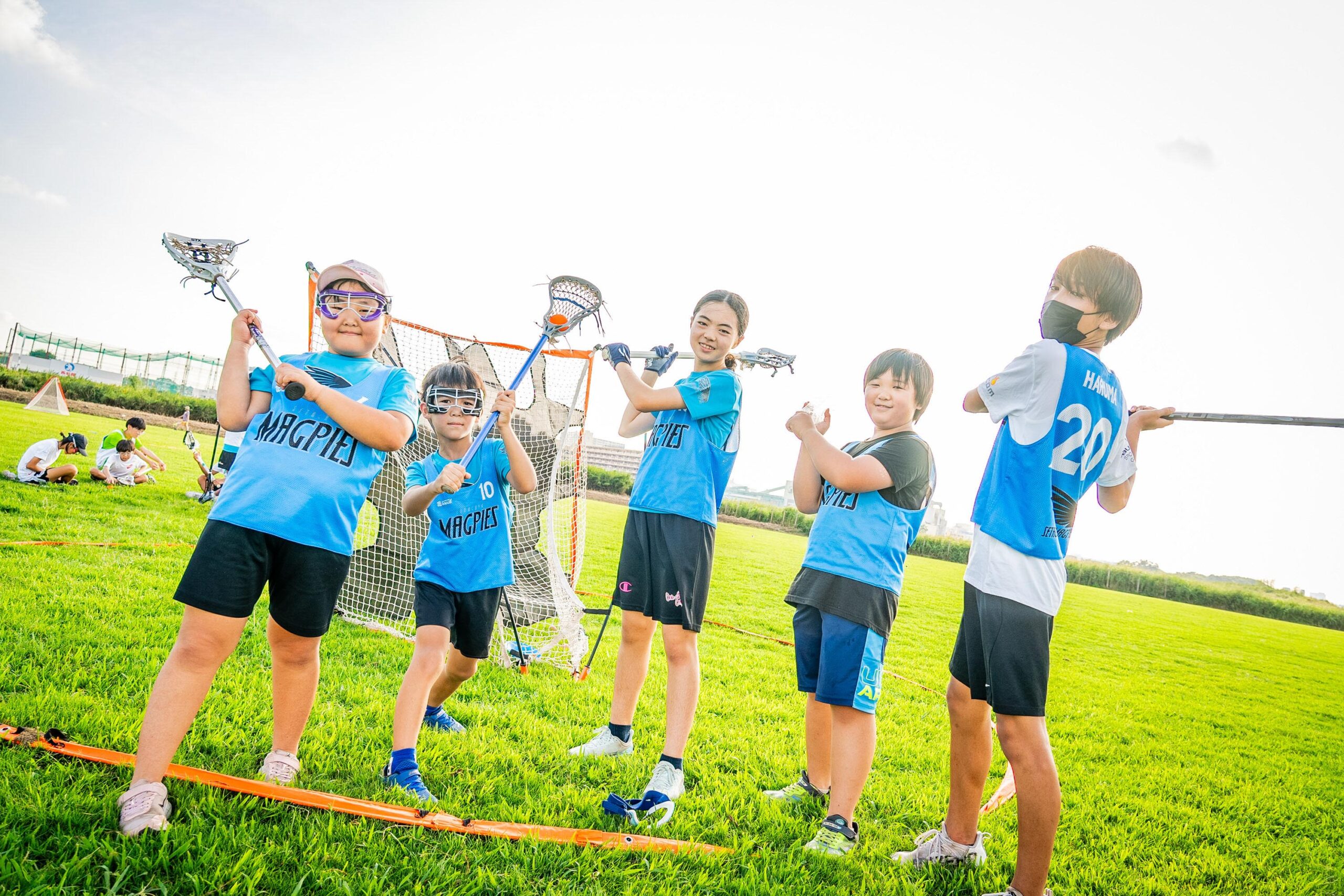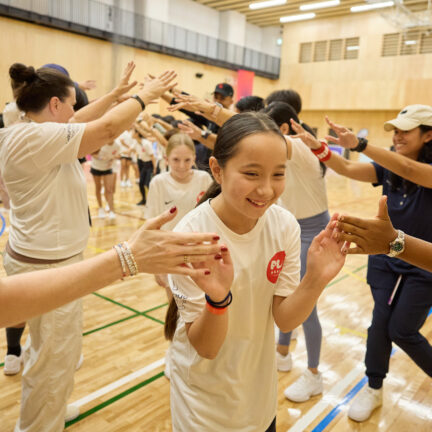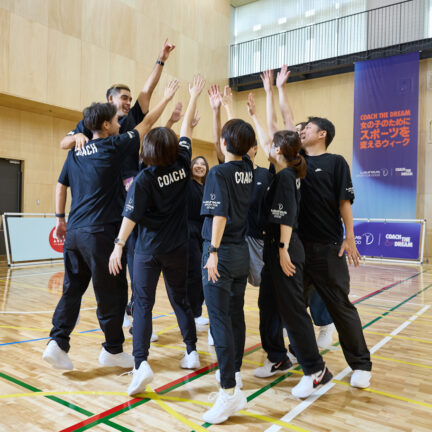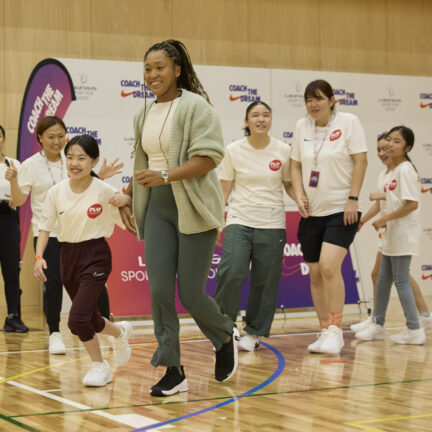Play Academy with Naomi Osaka is striving to provide a safe place for girls to play and feel empowered in Japan by moving the safeguarding agenda forward.
Since launching in Tokyo in 2020 and expanding to Osaka, Play Academy’s aim has been to change girls’ lives through play and sport by partnering with local grassroot organizations. However, all six current and previous organizations who receive funding did not have a safeguarding policy.
It was an alarming reality. But unfortunately very common for organizations throughout Japan, according to Play Academy’s safeguarding training partner NPO Kidzuku.
“Safeguarding is a relatively new concept in Japan, and the efforts on the ground had been made only in very limited contexts,” said Ikuko Mori in a Safeguarding Training Final Report earlier this year. “Some of the challenges derive from cultural norms that brushes off any allegations that such violence could happen in homes, schools and playgrounds, especially if it comes from children and youth.”
Research by Save the Children Japan saw that the majority of non-governmental organizations in the country are not actively pursuing safeguarding efforts and concluded that the widespread awareness of the concept remains limited.
To make any changes in the culture of safeguarding in Japan, Play Academy – an initiative formed in partnerships with Naomi Osaka, Laureus Sport for Good and Nike, Inc. – needed to start at ground zero and build the foundation among its supported programs.
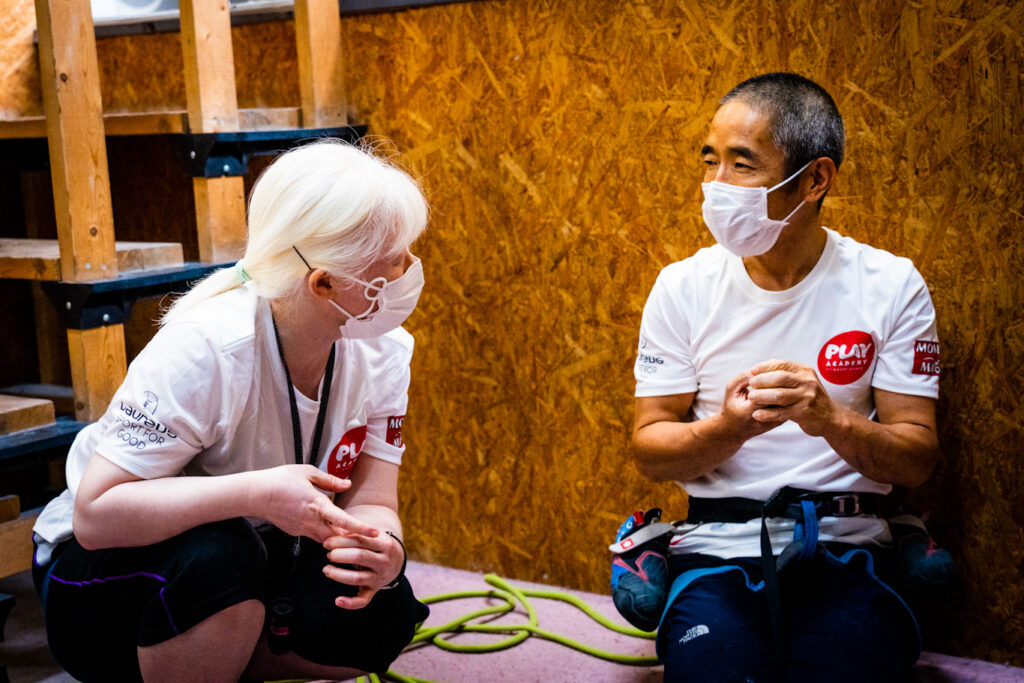
“In Japan, before we launched Play Academy in partnership with Naomi Osaka and Nike, Inc., we effectively had to manage a very serious reality,” said Dr. Morten Schmidt, Director of Programs and Grants at Laureus Sport for Good.
“It is not that Japanese youth are any more at risk than in other countries. But the lack of safeguarding policies among all the youth sport programs was a solid reminder that safeguarding would need to be front and center of the Play Academy initiative; first and foremost, we need to protect the children and young people engaging with the programs. We also have to protect everyone involved in delivering, supporting and endorsing the programs we’re funding, as well as Naomi Osaka and Nike.”
What is safeguarding?
The International Child Safeguarding Standard defines safeguarding as the responsibility of organizations to ensure their staff, operations and programs do not harm children, that is by exposing them to the risk of harm and abuse. Any concerns the organization has about children’s safety within their communities should be reported to the appropriate authorities.
Dr. Schmidt highlighted the sexual abuse scandals that clouded USA Gymnastics over the past decade, which exposed even more incidences in sports where major institutions — and in fact, across all levels including grassroots— failed to protect children and young people.
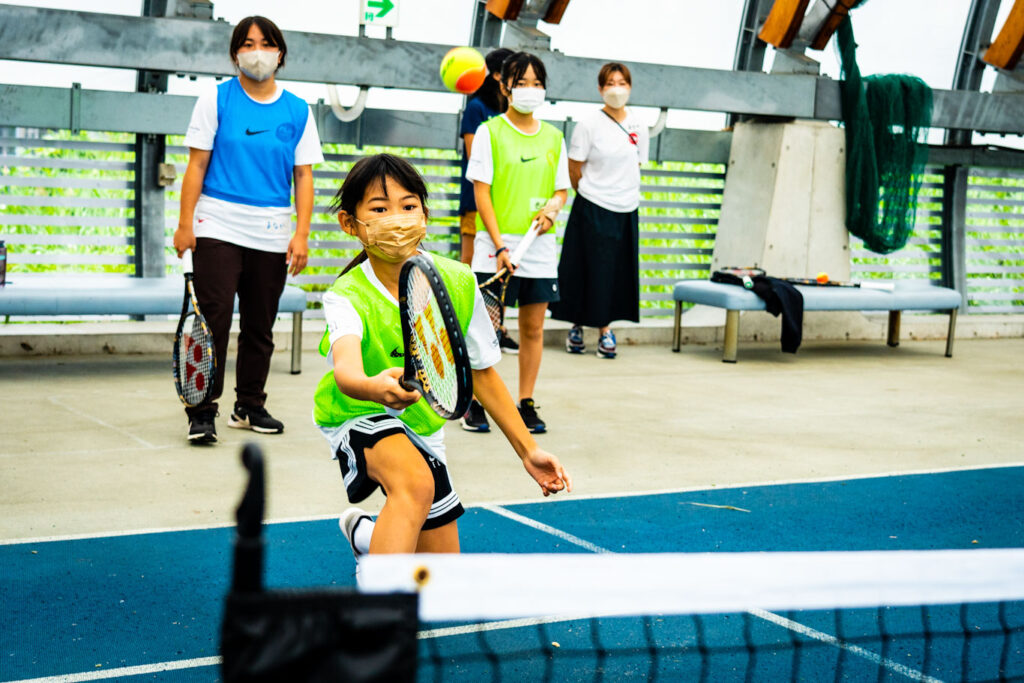
“Sports have received some well-deserved beatings over the past decade for its lack of safeguarding children and young people,” Dr. Schmidt said. “It made us think more consciously about creating cultures of practice, codes of conduct that would help create safe and enjoyable engagement in sport for children, young people and vulnerable adults.
“And it’s not just about creating safe spaces, but about making sport and sport for development safe and enjoyable.”
Play Academy’s efforts toward safeguarding in Japan
As part of receiving funding to improve programming for girls, Play Academy grantees are required to follow specific guidance regarding safeguarding, agree and sign Laureus Sport for Good’s safeguarding policy.
The grantees then must develop their own safeguarding policy, with individual consultation from NPO Kidzuku. Training sessions have been held three times in 2023 where all Play Academy grantees gather to discuss their challenges, share knowledge and receive additional recommendations. Those gatherings help inform how the organizations create their safeguarding policy, which Social Impact Advisor of NPO Kidzuku Minako Nakatani emphasized is an ongoing process, requiring adaptation and response to various situations and consistent updates.
“The policy should evolve as it interacts with real-world scenarios, ensuring it to remain as a ‘living document,’” said Nakatani.
Japan grantees taking ownership of safeguarding
In one year, progress has already been seen.
According to surveys conducted after the trainings, one of the former grantees, Ryutsu Keizai University (RKU) have taken action by conducting a regular online safeguarding meeting amongst their core staff members. Current grantees Monkey Magic and SPOCOM have been putting efforts into conducting trainings for their wider staff.
Organizations outside of Play Academy have also been invited to participate in the trainings and one commented: “While we intellectually understood the significance of safeguarding, through case studies, we gained insights into why certain situations could pose risks and learned about different risks from varying perspectives. It was a valuable learning experience.”
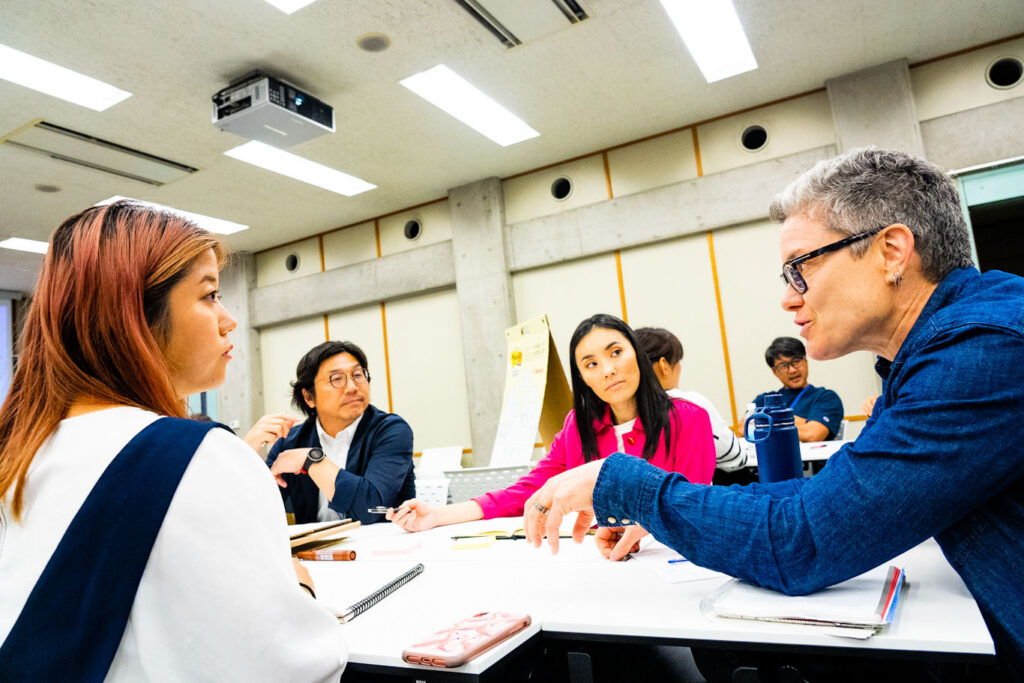
Nakatani recognizes the challenges the programs will continue to face to improve safeguarding in Japan like limited human resources, which makes it important to work with Play Academy to find solutions.
“A common issue for all organizations is that it is difficult to secure the capacity to continue incorporating organizational safeguarding efforts into daily activities,” said Nakatani. “(But developing a safeguarding policy) should be viewed as a journey that takes time and countless trial and errors to find preventive measures that are suitable for each organization.”
The final Play Academy safeguarding training of 2023 will take place on December 21, with three more planned for 2024, all to ensure children and young people feel and be safe and protected to play sport at their respective programs.
“Our aim with Play Academy in Japan – and all our Laureus Sport for Good supported programs – is to create awareness and a culture of safeguarding,” Dr. Schmidt said. “We want to create a culture that proactively makes sport safe and supportive for children and young people, instead of one that just reacts when the damage is done.”
